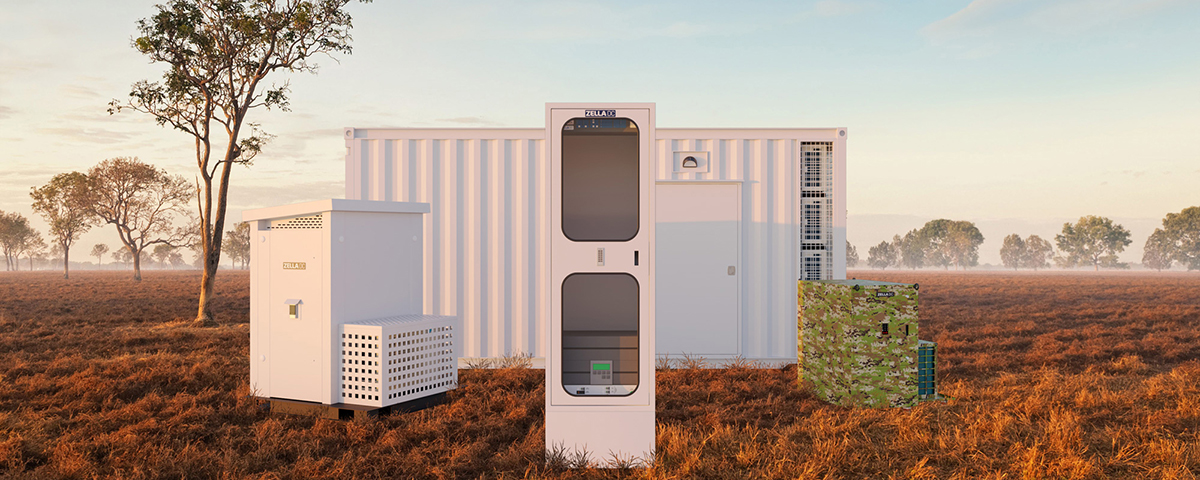As businesses increasingly rely on real-time data processing and IT agility, traditional data centres can no longer keep up with the fast pace of change. Micro data centres (MDCs) have emerged as a more flexible and cost-effective solution, offering substantial returns on investment (ROI) for companies of all sizes. Whether you’re looking to cut costs, improve efficiency, or future-proof your infrastructure, MDCs deliver a strong financial case.
Let’s explore the key reasons why investing in micro data centres offers substantial ROI.
1. Reduced operational costs
One of the standout benefits of micro data centres is their ability to significantly reduce operational expenses. Traditional data centres often require large amounts of space, power, and cooling, which can be expensive to maintain. MDCs, on the other hand, are designed to be compact and energy-efficient, minimising these costs.
For instance, Zella DC’s micro data centres come with advanced precision cooling systems, ensuring that power consumption is optimised without compromising performance. This feature alone can lower energy bills, leading to immediate and long-term savings.
Moreover, micro data centres require less maintenance due to their smaller size and streamlined design, further reducing costs associated with upkeep, staffing, and downtime.
2. Scalability and flexibility
Scalability is a critical factor when considering ROI in IT infrastructure investments. Traditional data centres can be expensive and time-consuming to scale up as your business grows. In contrast, MDCs offer modularity, allowing companies to add more capacity as needed with minimal disruption.
Investing in micro data centres gives businesses the flexibility to deploy IT resources quickly and in multiple locations. For instance, edge computing deployments in remote or underserved areas become more feasible with MDCs, enabling faster response times and localised data processing. This flexibility means that businesses can scale their operations as demand increases without the significant upfront investment typically associated with traditional data centres.
3. Optimised performance for edge computing
Micro data centres are perfectly suited for edge computing, which is becoming increasingly important as organisations more and more find the need to move data processing closer to the source. Whether for industrial automation, smart cities, or real-time analytics, MDCs deliver low-latency solutions that improve performance and enhance user experiences.
The ability to handle high workloads close to the data source translates into improved business performance and reduced network costs. By investing in indoor or outdoor MDCs, companies can save on data transfer expenses, improve processing speeds, and boost overall productivity — all of which lead to a higher ROI.
4. Shorter deployment times
Another compelling reason to invest in MDCs is the speed at which they can be deployed. Traditional server rooms and data centres often take months, if not years, to build and become operational. With micro data centres, businesses can deploy a fully functional IT infrastructure in a matter of days or weeks, drastically reducing time to market.
Zella DC’s micro data centres, for example, come pre-configured and pre-tested, requiring minimal setup on-site. Faster deployment means businesses can start benefiting from their investment sooner, enhancing ROI.
5. Enhanced security and compliance
Security is a top priority for any business investing in IT infrastructure, and micro data centres do not compromise in this area. Equipped with advanced cybersecurity measures like encryption, firewalls, and biometric access controls, MDCs offer robust protection against cyber threats. Zella DC’s MDCs, for example, include vandal-proof designs and IP-rated enclosures, making them physically secure and resistant to environmental hazards.
Additionally, MDCs help businesses stay compliant with local and industry-specific regulations by offering precise control over data storage and processing. This not only reduces the risk of penalties but also builds trust with clients who are increasingly concerned about data security and privacy.
6. Lower Total Cost of Ownership (TCO)
When calculating ROI, total cost of ownership (TCO) is a critical metric. Micro data centres generally offer a lower TCO compared to traditional data centres, primarily due to their energy efficiency, reduced space requirements, and minimal maintenance needs.
For example, the compact size of MDCs leads to a smaller footprint, saving on real estate and infrastructure costs. Additionally, their ability to operate efficiently in various environments — indoors, outdoors, or in remote locations — means companies can avoid the high costs associated with building large, specialised facilities.
The initial investment in MDCs may be smaller, but the long-term savings in operational and maintenance costs contribute significantly to a lower TCO and a higher ROI.
7. Sustainability and green IT initiatives
Sustainability is no longer a ‘nice-to-have’ but a crucial factor in modern business strategy. Micro data centres are designed to be energy-efficient, reducing carbon footprints and supporting green IT initiatives. By investing in MDCs, companies can align themselves with global sustainability goals, attracting eco-conscious customers and partners.
Zella DC’s micro data centres are designed with sustainability in mind. Their precision cooling systems and low energy consumption are key contributors to reducing environmental impact, while still delivering powerful IT solutions. For businesses seeking to enhance their corporate social responsibility (CSR) initiatives, investing in MDCs presents a clear path towards a greener, more sustainable future — while simultaneously improving ROI through cost savings.
8. Disaster recovery and business continuity
A reliable disaster recovery strategy is vital for any business, and MDCs provide an ideal solution for this. In the event of a disaster or power failure, micro data centres can continue operating, ensuring minimal downtime and protecting critical data.
MDCs are designed to be rugged and resilient, capable of withstanding harsh conditions, making them perfect for disaster-prone areas. Zella DC’s MDCs, for example, offer fireproofing and enhanced physical security, adding an extra layer of protection to critical infrastructure. This resilience ensures that businesses can maintain continuity, avoiding the financial losses associated with downtime and data loss.
9. Long-Term financial benefits
Investing in micro data centres yields long-term financial benefits beyond the immediate savings. As businesses grow and technology advances, MDCs offer future-proof solutions that adapt to changing needs. With their modular design and scalable architecture, MDCs eliminate the need for costly upgrades, allowing companies to maximise the value of their initial investment.
The flexibility to deploy MDCs in various locations, combined with the potential for integrating with future technologies like AI and IoT, ensures that businesses can stay competitive without incurring hefty IT infrastructure costs.
Micro data centres are a smart investment for the future
The ROI of investing in micro data centres is clear. From reducing operational costs and improving efficiency to enhancing scalability and security, MDCs offer a wide range of financial and strategic benefits. Whether you’re a small business looking to expand your IT capabilities or a large enterprise seeking to optimise edge computing solutions, micro data centres are a smart investment for the future.
By choosing solutions like those offered by Zella DC, businesses can unlock new levels of performance, sustainability, and profitability. In an ever-evolving digital landscape, investing in MDCs not only makes financial sense but also positions your organisation for long-term success.






